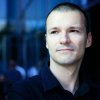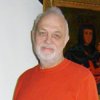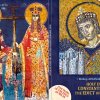Focus: User experience, product management, entrepreneurship
I conduct user research, build interactive prototypes, perform usability tests, create clean and intuitive UI for Web and mobile apps, and write production-ready code in HTML/CSS/JS. I have over 7 years of experience designing digital products across a variety of industries. I founded three companies in Europe and currently work at a stealth-stage startup in San Francisco.
Email: This email address is being protected from spambots. You need JavaScript enabled to view it.
Twitter: @lazarstojkovic
Website: www.lazar.me





